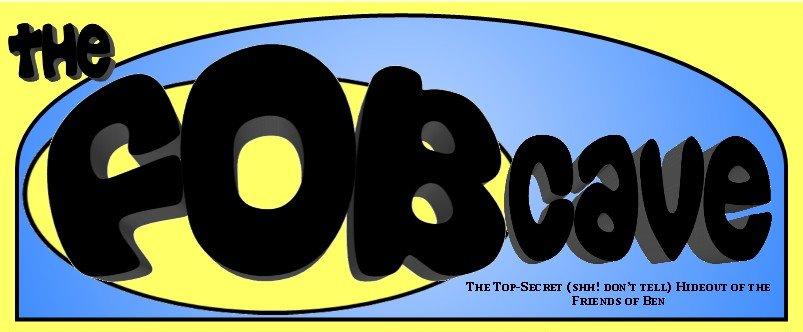This morning Sir Jupiter and I attended a workshop on religion and homosexuality at the Unitarian Universalist church in Edmonds. The workshop, sponsored by the UU in association with the Religious Coalition for Equality, focused on the intersection of homosexuality with various faith traditions. Four speakers led discussions on homosexuality in Judaism, Christianity, Islam, and Unitarian Universalism, respectively. Perhaps the most enlightening part of the day was the lunch hour spent with a Muslim lesbian and her brother--there are a lot of interesting parallels between Islam and Mormonism--but I also got a lot out of the actual sessions. Here are some brief thoughts from each of them (several of my insights, by the way, had little to do with homosexuality):
Judaism
Rabbi Harley Karz-Wagman, of the Reform tradition, talked about the question of whether homosexuality is a natural state of being or a learned characteristic, which is important to Judaism not because it answers the question of whether homosexual relationships are sinful--a lot of things that are natural are sinful--but because it is a starting point in the quest to find such answers. He explained that Yetzer HaTov (the inclination to do good) and Yetzer HaRah (the inclination to do evil) both come from God and are both necessary for good to be done in the world. Yetzer HaRah encompasses lust, greed, pride, and appetite, and without these drives human beings would not be motivated to do anything. Our job, I suppose, is to make sure they drive us to do good. Returning to the question of whether homosexuality is sinful, the Rabbi responded to apparent condemnations of same-sex relations in Leviticus with two sayings from the Talmud:
"You have to judge according to that which you see with your eyes." (i.e. not according to an ancient text whose meaning is unclear)
"If a sick person says he must eat and a hundred physicians say he does not need to eat, we must listen to him. For the heart knows its own bitterness."
Christianity
Reverend Richard Gamble of the United Church of Christ spoke about what he sees as the two Christian churches: the first views God as the Strong Father, where the answer to every question is "Because I said so," obedience is the motivating factor, order comes through coercive power, security comes in following the rules, and the hierarchical structure of the church is the unquestionable source of rules; the second views God as the Nurturing Parent, where the only rule that matters is that we love God and our fellow man. I think it's obvious where Rev. Gamble places himself in this binary system. In defense of what appears to be Us vs. Them mentality, the reverend tells the parable of three men dying of thirst in the desert. One man says there's an oasis to the north, another says there's an oasis to the south, and the third, attempting to resolve the conflict through compromise, suggest they find some middle ground. So they stay where they're at and die. Perhaps it's possible to acknowledge that there is an Us and a Them without necessarily making it Us versus Them. Perhaps I spend too much energy trying to find that middle ground when really there is none. I don't know. This is a new idea to me.
Islam
Nayer Taheri, an Interfaith Chaplain and Islamic scholar, spoke about homoerotic traditions in medieval Islamic cultures and juxtaposed these with the modern Islamic misconception that homosexuality exists only as a result of western influence. She noted that just as conservative Christians cite the few biblical passages that seem to address homosexuality, Muslims will insist, "But the Qur'an says..." She reminds us, though, that neither the Qur'an nor the Bible say anything--they are inanimate objects, incapable of speech. They "say" only what we interpret them to say. Like in western culture, Muslim persecution of homosexuals seems to be a case of homophobia informing scriptural interpretation, rather than vice versa. Ultimately, all religions boil down to the same thing: treat others as you want to be treated. I wonder if she was at the interfaith sermon I blogged about two weeks ago?
Unitarian Universalism
This section of the workshop unfortunately felt like a promotion for the Unitarian church. Yes, they were fighting for gay rights long before anyone else was, and yes, I'm intrigued by the all-encompassing nature of their approach to religion--it would seem to fit nicely with my All-Paths-Lead-to-God philosophy of late--but at the moment I'm happy with the church I'm attending. Nonetheless, I'm grateful to them for putting on this workshop. I enjoyed learning about other faiths and how LGBT members of those faiths reconcile their sexuality and their religion. As one participant pointed out this morning, one of the greatest struggles of queer people is to rebuild our relationship with God after so many of us have been hurt so deeply, ostensibly in his name.
Subscribe to:
Post Comments (Atom)





4 comments:
I wish I were in Seattle.
We wish you were too! It was pretty interesting. The Christian minister was very unprepared, though.
I'm pretty sure applying the parable of the men in the desert to whatever he was talking about is some sort of logical fallacy. But not totally sure. I wasn't paying a LOT of attention to the various fallacies in logic class. But I did get an A, and I'm pretty sure...
Ben, How have people hurt you in God's name?
Post a Comment